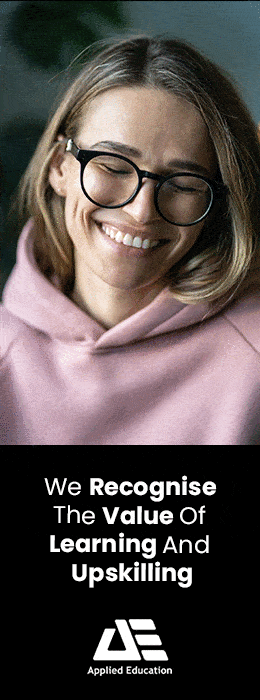
Before we answer the question we need to understand the meaning and the process of what it takes to be a bookkeeper.
Bookkeeping Certification Requirements
What Is Bookkeeping?
By definition, bookkeeping is a process of recording and tracking of financial transactions that is done online and offline in a business.
It is the primary role of bookkeepers to summarise all transaction activities into translatable reports that shows how the business is performing.
There are a myriad of tasks involved in bookkeeping. To name a few, bookkeeping often involves invoicing, paying of bills, preparing organisation tax returns, monitoring organisational KPIs or otherwise known as key performance indicators.
While the tasks of bookkeepers could sometimes be much more complex, their role can often be of importance in providing key strategic advice and insights in planning and management.
Understanding The Basics Of Bookkeeping.
The main essence of bookkeeping starts at the beginning of any bookkeeping entry from a transaction. A transaction is instinctively the sale of goods, the purchase of services or the shifting of money between accounts.
The responsibility of a bookkeeper is to ensure every transaction no matter how small that takes place gets recorded, this is done using a journal. Journals can take the form of a spreadsheet, an entry into an accounting software, or a bank feed downloaded online directly from a bank.
(Nowadays, these entries are often part of the business activity itself. For example, if configured correctly, an online sale should generate an invoice automatically, as well as the necessary bookkeeping entries.)”
Below are some basic bookkeeping structures and definitions that every bookkeeper should be familiar with. The diagram below is central to the methods and processes that a bookkeeper follows to create accurate accounts.

Accounts- Different Business Transactions Can Fall These Categories:
- Assets: Things the business has bought and owns. All inventory, and money owed to the business as accounts receivable.
- Liabilities: Reflected by the amount the business owes in unpaid bills, taxes, wages, or loans.
- Owner/shareholder equity: Also referred to as referred to as shareholders' equity and stockholders' equity Money introduced and withdrawn by the owner or shareholders.
- Income: Money received (mostly from sales).
- Expenses: Money spent.
Financial statements: There are many financial statements but two main ones – the:
- Balance sheet lists the things your business owns and their value, plus the amounts your business owes.
- Profit and loss (P&L) totals the income and expenses for a set period of time and demonstrates how the business is trading.
In understanding this, do you need to be certified to be a bookkeeper? The short answer is No!
Bookkeepers are not like doctors or accountants where a degree is required and the processes are regulated by a government body. The upside though is that with a certification, you gain more credibility and have the ability to insert those credentials into your own branding.
How To Become a Bookkeeper?
As bookkeepers, a certain level of responsibility is needed in terms of accountability. This does not only apply in terms of accuracy of all financial statements but also abiding to the regulations that govern the accounting industry. There are rules and guidelines that has to be followed to protect clients from risks.
In order to become a bookkeeper, there are 5 different types of optional pathways a person can choose.
- On the job training
- Traditional college or university classes
- National bookkeeping groups
- Software certifications
- Online training institutes
Do I Need To Be Certified To Be a Bookkeeper?
There are many instances where an individual can get their first bookkeeping job with just a high school qualification and learn the basics of bookkeeping on the job. Without a doubt, it certainly helps to up-skill and expand your credentials.
All bookkeepers that provide BAS services for a fee must be registered with the Tax Practitioners Board. To apply for BAS Agent registration, you’ll need to complete at least a Certificate IV level qualification, such as the Certificate IV Accounting and Bookkeeping (FNS40217).
What Sort Of Training Can You Get?
Courses are available through our Applied Education website. There are online courses where you can learn the basics to more advanced topics of bookkeeping. At Applied Education we are an accredited provider, with the facilities to conduct both online or in a classroom learning environment.
Obtain your qualification today and enrol for one of our courses such as a Certificate IV Accounting and Bookkeeping (FNS40217) or Diploma in Accounting (FNS50217)
If you are looking to re-skill or up-skill but unsure of which course best suits you, get in touch with one of our consultants today and we will endeavour to help you.
Study with us at Applied Education.
At Applied Education, we understand that it is essential to remain relevant in the workforce and to continuously strive for growth. If you are still deciding whether we are the right institution for you, check out our about us page and also consider following us on social media.
We make a sincere effort to ensure the accuracy of the material described herein; however, Applied Education makes no warranty, express or implied, with respect to the quality, correctness, currentness, accuracy, or freedom from error of this document or the products it describes.
Applied Education makes no representation or warranty concerning the contents hereof and specifically disclaims any implied warranties of fitness or any particular purpose.
Applied Education disclaims any liability for any direct, indirect, incidental, consequential, special, or exemplary damages resulting from the use of the information in this document or from the use of any products described in this document.
Mention of the product does not constitute an endorsement of that product by Applied Education. Data used in examples and sample data files are intended to be fictional. Any resemblance to real persons or companies is entirely coincidental.


